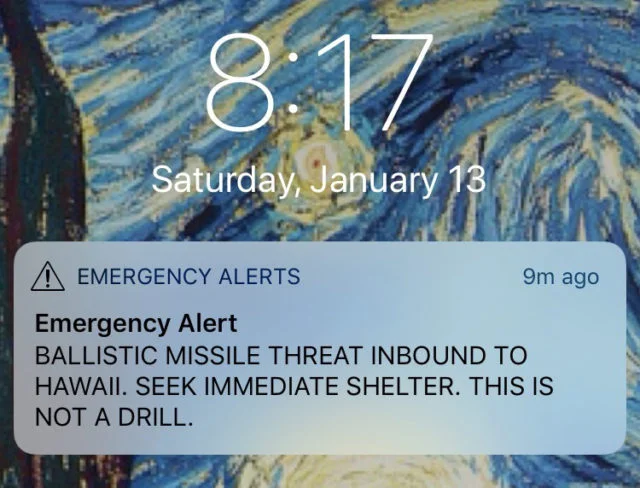Packing a Kit
We hear time and time again from many different sources that it is important to "pack a kit", "put together some supplies", "make a go bag", but what does this mean? It may seem to be a daunting task, but it really doesn't have to be. Many think packing a kit means to go and buy the biggest duffel bag at the store, and stuff it full of emergency equipment and put it in the basement.
If you are able to pack a kit all at once, that's great. Many folks however, don't have the time or resources to make a kit all at once. What we recommend is either 1)Researching kits that meet your needs and buying a pre-made emergency kit, or 2) Take the piecemeal approach. This means buying one or two extra items each time you go to the store, and when ordering from your favorite online retailer order one or two extra items that you can fit in your kit. The piecemeal approach allows you to really consider what you want in your kit and why. It also allows you to gauge the size and weight of your kit, and its main Philosophy Of Use. These are all important considerations when deciding what should go in your kit and how it will be organized. Of course, if you want to go the pre-made emergency kit route, World Aware can help with that. If you decide to go piecemeal, we can help with some of the items you need or provide guidance for what you should include in the kit for your home, car or place of work.
Packing a Kit
We hear time and time again from many different sources that it is important to "pack a kit", "put together some supplies", "make a go bag", but what does this mean? It may seem to be a daunting task, but it really doesn't have to be. Many think packing a kit means to go and buy the biggest duffel bag at the store, and stuff it full of emergency equipment and put it in the basement.
If you are able to pack a kit all at once, that's great. Many folks however, don't have the time or resources to make a kit all at once. What we recommend is either 1)Researching kits that meet your needs and buying a pre-made emergency kit, or 2) Take the piecemeal approach. This means buying one or two extra items each time you go to the store, and when ordering from your favorite online retailer order one or two extra items that you can fit in your kit. The piecemeal approach allows you to really consider what you want in your kit and why. It also allows you to gauge the size and weight of your kit, and its main Philosophy Of Use. These are all important considerations when deciding what should go in your kit and how it will be organized. Of course, if you want to go the pre-made emergency kit route, World Aware can help with that. If you decide to go piecemeal, we can help with some of the items you need or provide guidance for what you should include in the kit for your home, car or place of work. Click here or on any of the links in this blog to Shop World Aware.
The Reality of Emergencies
emergency (ĭ-mûrˈjən-sē)
n.
A serious situation or occurrence that happens unexpectedly and demands immediate action.
n.
A condition of urgent need for action or assistance: a state of emergency.
adj.
For use during emergencies: emergency food rations.
As you can see in the definition above, emergencies are considered "serious situations" or "a condition of urgent need for action or assistance". Emergencies and disasters can often be used interchangeably. We have seen many examples of disasters or emergencies recently. Whether its hurricane Harvey or Irma, winter storms or earthquakes, we have seen countless examples throughout history and more recently.
When consulting individuals, families and businesses on emergency preparedness we often get the question, "what emergencies should we prepare for"? We like to take an "All Hazards" approach, and honestly this means preparing for outages or interruptions to our normal way of life. This includes having realistic expectations of certain services.
Most emergencies involve interruptions of some sort. And thankfully many interruptions require the same materials, equipment and plans to prepare for. Think about food, water, first aid, communications, fun activities and safety. Of course it is best practices to do your research and know what risks you face in the area you live or work. However, it is possible to get a kit and develop plans that would help you deal with most disasters.
Stay safe, and be aware!
Hawaii's emergency notification system false alarm
Recently we heard about the emergency notification sent out in Hawaii, warning the residents of an impending missile attack. This notification turned out to be a false alarm, sent by accident to the cellphones of those in Hawaii. This turned out to be an unfortunate accident, due to human error.
Understandably, this caused a great amount of worry among those who received the message. There were reports of people running red lights, taking shelter in tunnels and a certain level of general panic.
While this was an accident due to human error, we should still understand the need for emergency alert systems such as this. Whether it's the Wireless Emergency Notification System (WENS) or the Integrated Public Alert and Warning System (IPAWS) these systems are here for our safety.
One thing that we can take away from this unfortunate accident is the need to plan for major disasters. In the case of an impending nuclear strike, it may seem like a hopeless situation, but that may not be the case. Take time to make a plan for what to do if there is a large scale disaster that may require immediate action. The type of threat that the notification in Hawaii was focused on is not the only type of major disaster that may impact your area. Earthquakes, Hazardous Materials (Hazmat) incidents, wildfires and even flash floods are all events that may require quick, decisive action on your part. Discussing what you would do and making a plan will make your response to any of these less stressful. Our thoughts go out to all of those impacted by the false alarm and any trauma they may have because of it.
Small Businesses: Emergency preparedness steps you can take NOW!
As a small business you may not have the time, need or resources to have a full time emergency manager to develop emergency plans and build response capacity at your business. It is important to know that you can take simple preparedness steps that will make all of your staff safer.
As a small business you may not have the time, need or resources to have a full time emergency manager to develop emergency plans and build response capacity at your business. It is important to know that you can take simple preparedness steps that will make all of your staff safer.
It sounds very simple, but one of the first steps you can take is to develop and practice evacuation plans. If you are a business that often has members of the public in your space as customers, then have your staff practice evacuating customers. Have a primary close evacuation point and farther secondary evac point mapped out and make sure staff know these points and can get to them easily. If the first point is too close and becomes too dangerous to stay in place then staff and customers can move to the secondary evacuation point. Develop and practice communications explaining to customers what is going on and to remain calm and exit the building.
It is also important to make contact with your local police department and share your plans with them, they may even have officers who can help educate staff on what to expect from a police response. Also, if first responders know where your evacuation points are, they know exactly where they can send ambulances if any medical help is needed. You can even coordinate with neighboring businesses and choose the same evacuation points for heightened safety of your business district.
Small businesses also need to practice sheltering in place (SIP). It is possible that you may be compelled to shelter in place due to emergencies such as gas leaks, or violent activities in your area. Oftentimes the order to SIP is given by law enforcement, and it may last for hours. You should make sure your business has the resources it needs to sustain and keep staff and customers as comfortable as possible during what may be an hours long lockdown/shelter order. This time may be frustrating and traumatic for all involved, so consider a kit with some essentials to help make the SIP easier.
Your business will also benefit from having staff trained in first aid and CPR. If you have shift managers who are present during all open hours of operation, they would be they best choices for CPR training. They are already in a leadership position, and will be present at all times the business is open.
These are all simple straightforward steps that any small business can take to better prepare themselves for emergencies. These guidelines can help keep customers safe, and give your staff the tools and confidence they need to keep your business safe. See what World Aware can do for you, Say Hello!








